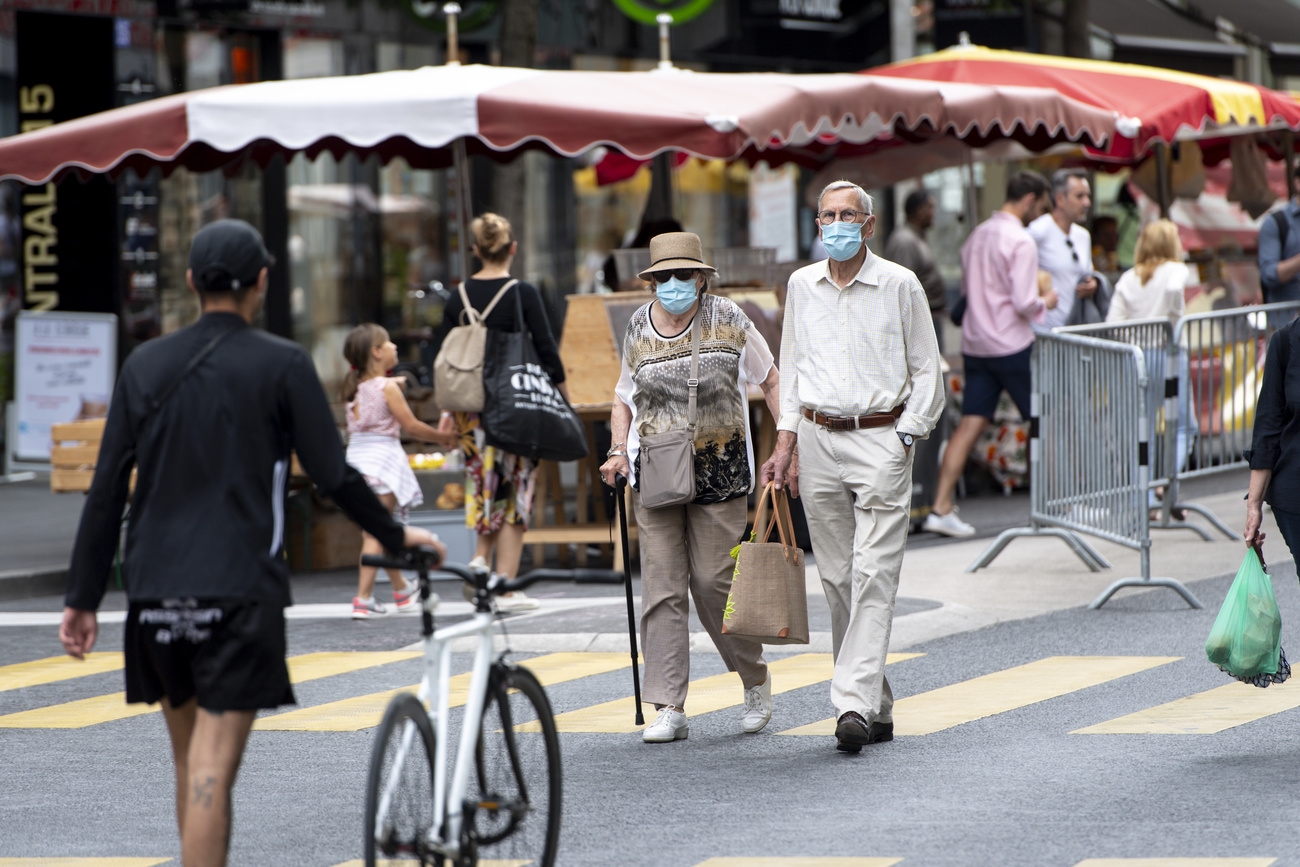
Certification bottleneck keeps Swiss-made face masks in the warehouse

The distribution of long-awaited Swiss-made protective face masks, which were funded by the Swiss government and canton Zurich, has been delayed, it has been reported. Production has started but stocks remain in the warehouse as they have not yet been certified.
The supply of face masks in Switzerland to cope with the coronavirus pandemic has been an ongoing headache. Initially, pharmacies and suppliers lacked masks and other protective equipment.
The Swiss government and canton Zurich joined forces in April and acquired two machines in an attempt to boost local production. The machines should have started producing 64,000 type II surgical masks a day from the end of April. However, on Tuesday Swiss public radio, SRF, reported that the Swiss-made masks are still not available.
The two machines reportedly arrived on April 22. It then took six weeks for a team to assemble them at a production site belonging to the firm Flawa at Flawil, canton St Gallen.
The production line has only been running since June 2, SRF said. But masks are still not available as they first need to be officially certified to ensure they meet coronavirus protection standards.
“As there is no institute in Switzerland that certifies masks, the certificate is issued by the TÜV Nord testing institute in Germany,” a Flawa spokesperson told SRF. “But this is currently overwhelmed with certification applications.”
It is unclear when the first masks will start leaving the warehouse and if they will be used by the public.
Should I wear a mask?
The Swiss government decided not to impose a general obligation for residents to wear face masks as the country began relaxing coronavirus restrictions.
A survey in April initially showed a majority of respondents coming out in favour of a mandatory wearing of masks. However, a poll on June 12 revealed that support for the compulsory wearing of a hygiene mask in public appeared to be losing ground. Thirty per cent of those questioned said they should be worn all the time, while 20% said they should be worn part of the time.
Another opinion poll published in May found that more than two out of three respondents would prefer masks to be mandatory in trains and buses to protect people against the infectious Covid-19 virus.
However, a report on the use of public transport in Switzerland this month showed that only a small minority of people were reportedly wearing face masks on public transport – it is recommended when busy but not obligatory. Post Bus reckons it’s around 5%; the federal railways did not give a number.

In compliance with the JTI standards
More: SWI swissinfo.ch certified by the Journalism Trust Initiative

























You can find an overview of ongoing debates with our journalists here . Please join us!
If you want to start a conversation about a topic raised in this article or want to report factual errors, email us at english@swissinfo.ch.